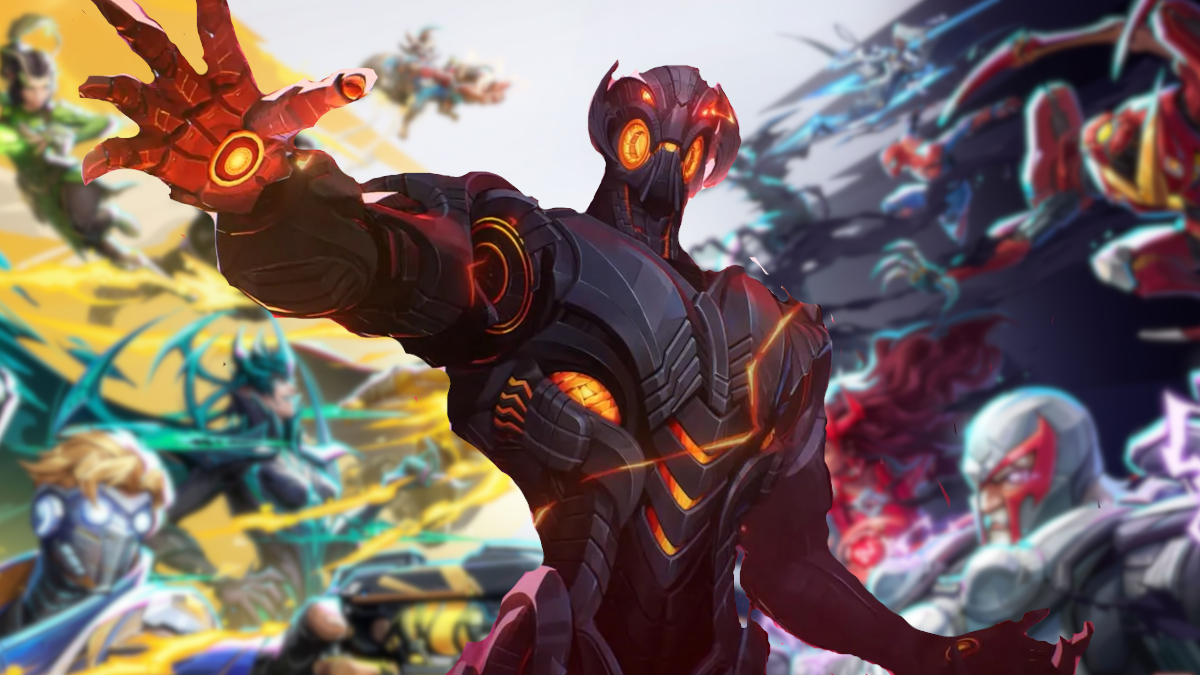The Marvel Cinematic Universe “Multiverse Saga” storyline has been a low point for the franchise. Marvel Studios will try to finally close the door on this volume of the MCU with the release of Avengers: Doomsday and it’s follow-up, Avengers: Secret Wars – and will presumably close the door on multiversal storytelling as well, taking things back to a singular “prime” or “main” universe that serves as the franchise’s soft reboot. Howeveer, even if the MCU does get a fresh new start come Phase Seven, it won’t erase the fact that the Multiverse Saga never really delivered an impactful story that resonated with MCU fans.
The Marvel Rivals game launched in Decemeber of 2024, marrying a third-person, team-based shooter with the Marvel Universe brand. Rivals has impressed hardcore Marvel fans by offering deep Marvel Comics lore along with its action-packed gameplay. Season 2 is about to launch to more fanfare and acclaim than ever, and it’s now clear that Marvel Rivals has managed to nail the deeper thematic meaning of multiverse story better than the MCU ever has.
For those who don’t play the game, Marvel Rivals‘ overarching story sees Doctor Doom is clashing with his more noble future self from the year 2099, which causes a “timestream entanglement” in which different universes all collide, and heroes and villains from different realities of the Multiverse are thrown together into battles against various foes (Dracula, the symboties, etc.) leading to the larger mission to stop both Doom variants before one conquers the multiverse, or both annihilated it in their struggle.
Now granted, there is a lot about Marvel Rivals that sounds like it could be adapted into the overarching stories for Avengers: Doomsday and Avengers: Secret Wars – from the Doom variant(s) trying to conquer the multiverse to the various Marvel character variants that could be thrown together. And yet, Marvel Rivals‘ adds small touches – from the mission storylines, to the in-game character diagloue that activates when certain characters are teamed up – that demonstrate much deeper meaning to the Mutliverse Saga. For example: the version of Steve Rogers/Captain America who players select has much to learn about his own legendary status and standing in different realities – his grand importance to many of the other heores, or his surprise at how other heroes turned out in other realities (Bucky, The Punisher).
[RELATED: Avengers: Doomsday Directors Agree The MCU Needs a More Focused Central Story ]
These are small throwaway moments of gameplay aesthetic, yes, but they are also major spotlights on what the MCU has not done with its Multiverse Saga storytelling: Pulling on chords of tension and intrigue created through the sort of “road not traveled,” anxieties that every human experiences. It’s those anxieties about choice and consequence that make the entire sci-fi multiverse concept resonate in the first place, but the MCU movies and TV shows have largely missed the mark on making it mean something to viewers.
The project that came closest was no doubt Spider-Man: No Way Home, which brought back Tobey Maguire and Andrew Garfield’s Spider-Men characters from previous eras of the franchise, for a meme-style juxtaposition with Tom Holland, and reflection on who Spider-Man is, in any reality. That said, No Way Home‘s arc with the Peter Parker variants comes as a late-game twist in the story – it is far from bieng the main focus of it. Garfield and Maguire brought some nice gravitas to their scenes with Holland, and forced his Peter Parker to reconsider what his life and losses meant. And yet, No Way Home also illustrates the major flaw of the MCU Multiverse Saga, as it too fell more into a valley of meta-level commentary on Spider-Man movies, rather than a fully embracing the thematic line of MCU Spider-Man having to learn improtant lessons and perspectives from his variants.
You can take this same thematic issue and apply it to many of the other Multiverse Saga projects the MCU has put out. Doctor Strange in the Multiverse of Madness squandered a potentially deep, dark, story about how complex we are as people (with Strange having to confront some of the horrific and/or tragic events he’s caused in other realities), in favor of using the multiverse as a glorified conveyer belt of camoes and Easter eggs, meant to make the MCU Multiverse feel mch more groundbreaking than it’s actually turned out to be. Films like The Marvels went so far as to make the multiverse into an extraneous post-credits add-on, meant to once again hype a glorified cameo (The X-Men). Even the What If…? animated series – probably the most 1-to-1 comparison with Marvel Rivals – left fans unimpressed by the kind of ‘Multiverse Avengers’ storylines it tried to offer up as “events.”
Only the longform format of Loki‘s two-season storyline allowed MCU fans to get a proper deep-dive look into multiversal themes of choice, consequence, and how they shape our lives – and the lives of those connected to us. Meanwhile, fans can get together right now and play through scenarios of variant heroes banding together to save the Marvel Multiverse, and get the exact thrill they’ve been missing. It’s strange to see Marvel Gaming take a leading stride in using the building blocks of Marvel Comics lore to tell multiverse story – but here we are.
Marvel Rivals Season 2 is about to launch on various console and PC gaming platforms. The MCU will try to recoup what it can from this Multiverse Saga misstep when Avengers: Doomsday hits theaters on May 1, 2026.
Comparing and contrasting Net Gears hot multiplayer game Marvel Rivals, to the recent movies released for the Marvel Cinematic Universe franchise of movies. Read More

